By Katie Clement | Photography by Jeff Montgomery |
Nov. 2, 2022, the American Studies Institute hosted Executive Director of the United Nations World Food Programme and former South Carolina Gov. David Beasley along with U.S. Sen. John Boozman and former Walmart CFO Brett Biggs for a series of conversations on the future of global food security. This event, part of the Distinguished Lecture series, was held to educate the community about the global food crisis and learn how the University can partner with the community to help address food insecurity.
During chapel that day, students heard about the statistics surrounding hunger and starvation globally. Beasley said when he was appointed executive director of the World Food Programme in 2017, 80 million people were “marching toward starvation.” That number grew to 135 million ahead of the COVID-19 pandemic primarily due to human-caused conflict. Now, following the Ukraine crisis, the number of people facing starvation is 350 million.
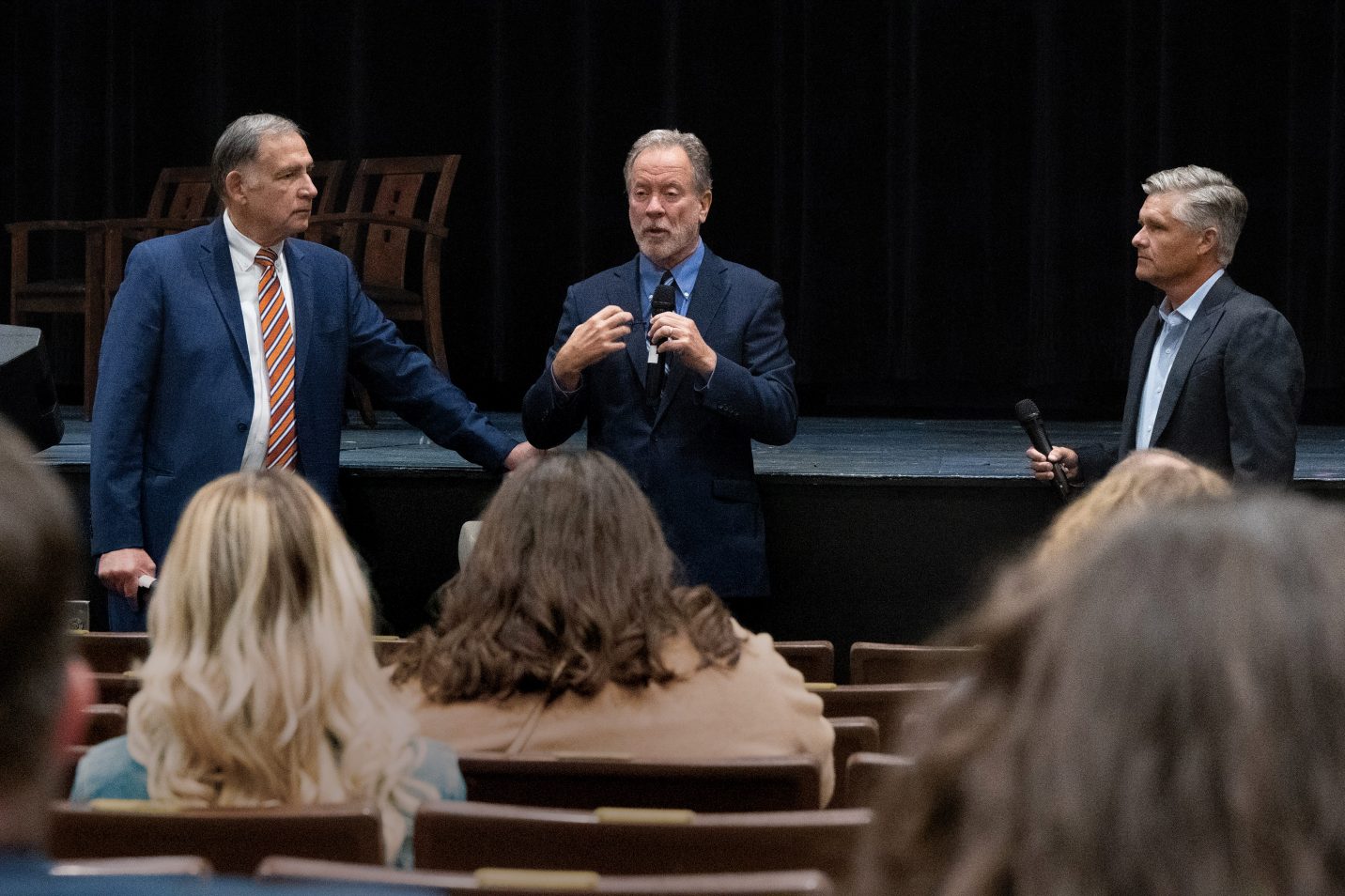
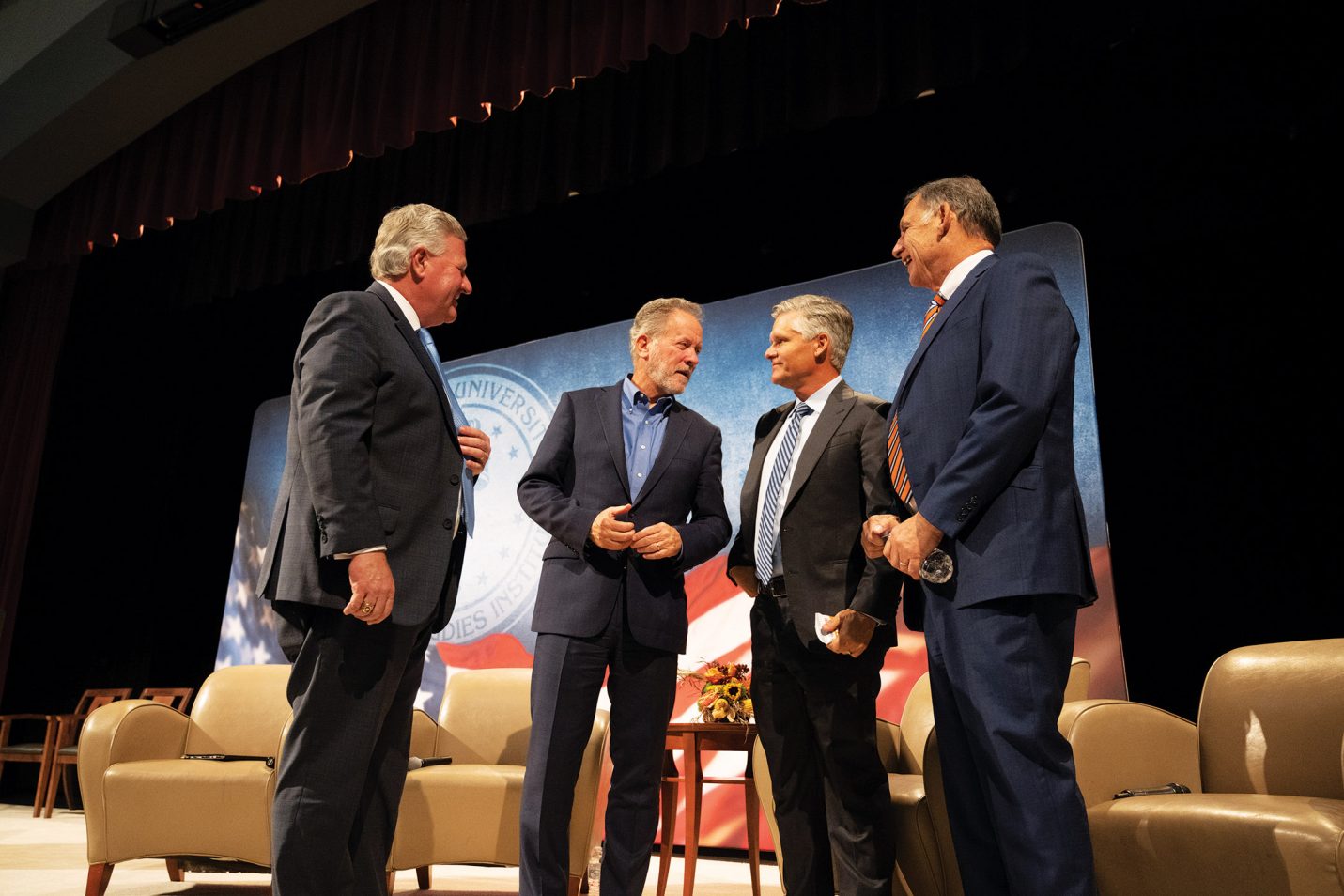

As Beasley works to decrease these numbers by helping bring aid to millions, he has witnessed many tragedies first hand.
“Eighty percent of my operations in the World Food Programme are in war zones. I see hell on Earth every single day,” Beasley said. “I see people dying and starving because of man-made conflict. I see what happens when we have division versus unity.”
“Can you imagine if every human being saw one another as an equal?” Beasley said.“… When you love God, you will love your neighbor; … when you love your neighbor, you are loving the image of God. … Imagine if we could live that simplicity every single day of our lives.”
Executive Director of the United Nations World Food Programme and former South Carolina Gov. David Beasley
Through these encounters, Beasley has experienced what it means to live out Matthew 25:40: “... Truly I tell you, whatever you did for one of the least of these brothers and sisters of mine, you did for me.” This theme continued to surface throughout the day.
During the afternoon panel, President Mike Williams mediated a Q&A session with Beasley, Boozman and Biggs.
“I cannot think of a more timely topic for us especially at Harding University where we are operating from an inspired purpose where we’re trying to prepare leaders,” Williams said. “We become change agents, influencers, revolutionaries. We want to envision the world as God intended from the beginning, and this is a Genesis 2 conversation where we reflect on the fact that God asked us to partner with him, the shepherd, to steward his creation.”
Biggs recalled a trip to India where he witnessed extreme poverty but stressed that the fight against food insecurity only resolves by addressing the root causes.
“I think businesses have a chance to [help address these issues] — and companies the scale of Walmart certainly can — by educating farmers in Central America, South Africa and India on how to grow crops,” Biggs said. “How to make them sustainable. How to not only grow crops for their own family but eventually take it into the market and help create a permanent solution. … Events like today are important, but we’ve got to go do something after this."
"… All of us can do something. Everybody in this room, I assume you are here because you want to do something. And whatever that looks like to you, I encourage you to go out of this room today and do that."
Former Walmart CFO Brett Biggs
Though this issue may seem insurmountable, Boozman, ranking member of the Senate Committee on Agriculture, Nutrition and Forestry, believes it is a problem we can solve together.
“We’ve had difficult times in my lifetime before, and this is a difficult time in our history right now in regards to feeding the world,” Boozman said. “... This is going to take everybody working together. … We are a great nation; we’ve overcome a lot and will continue to overcome a lot, and that’s really what it’s all about.”
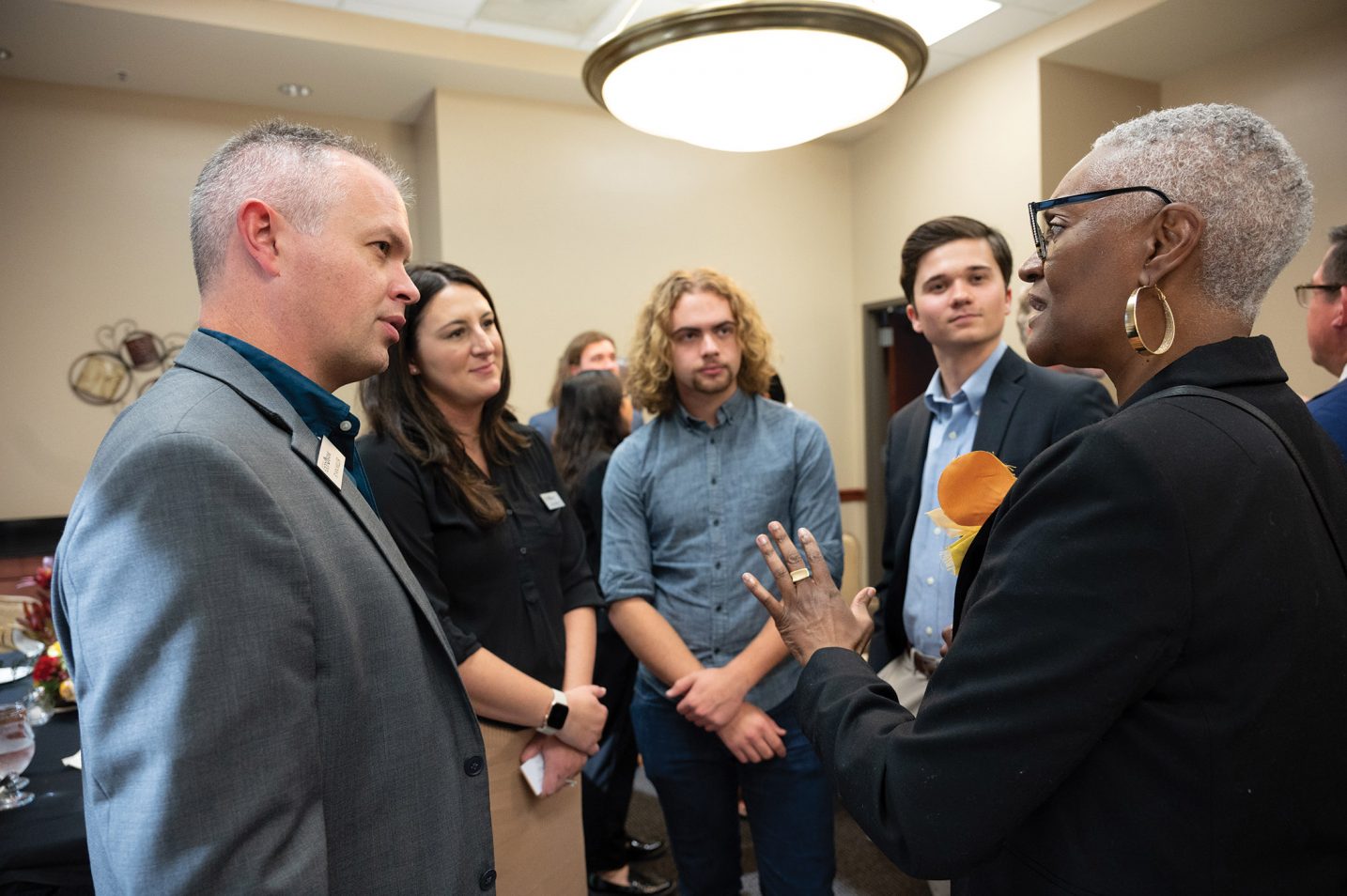
"We have the opportunity to grab hold of hands and walk together in this. And I’m challenging us to do that. There can be no fear of shame or dignity being damaged by this.”
Dr. Andrea Morris
The conversation continued later in the week with Dr. Andrea Morris, assistant to the provost for strategic initiatives, and Tucker Lovell, a junior integrated marketing and communications major, discussing tangible ways students can help their neighbors facing hunger.
“One third of students at a four-year campus like Harding suffer from food insecurity. EDUmed.org surveyed around 100,000 students after COVID-19. … Only 14% of colleges and universities rank food insecurity a top five issue when there have been so many studies and problems that have been put in front of us.”
Tucker Lovell, junior integrated marketing and communications major
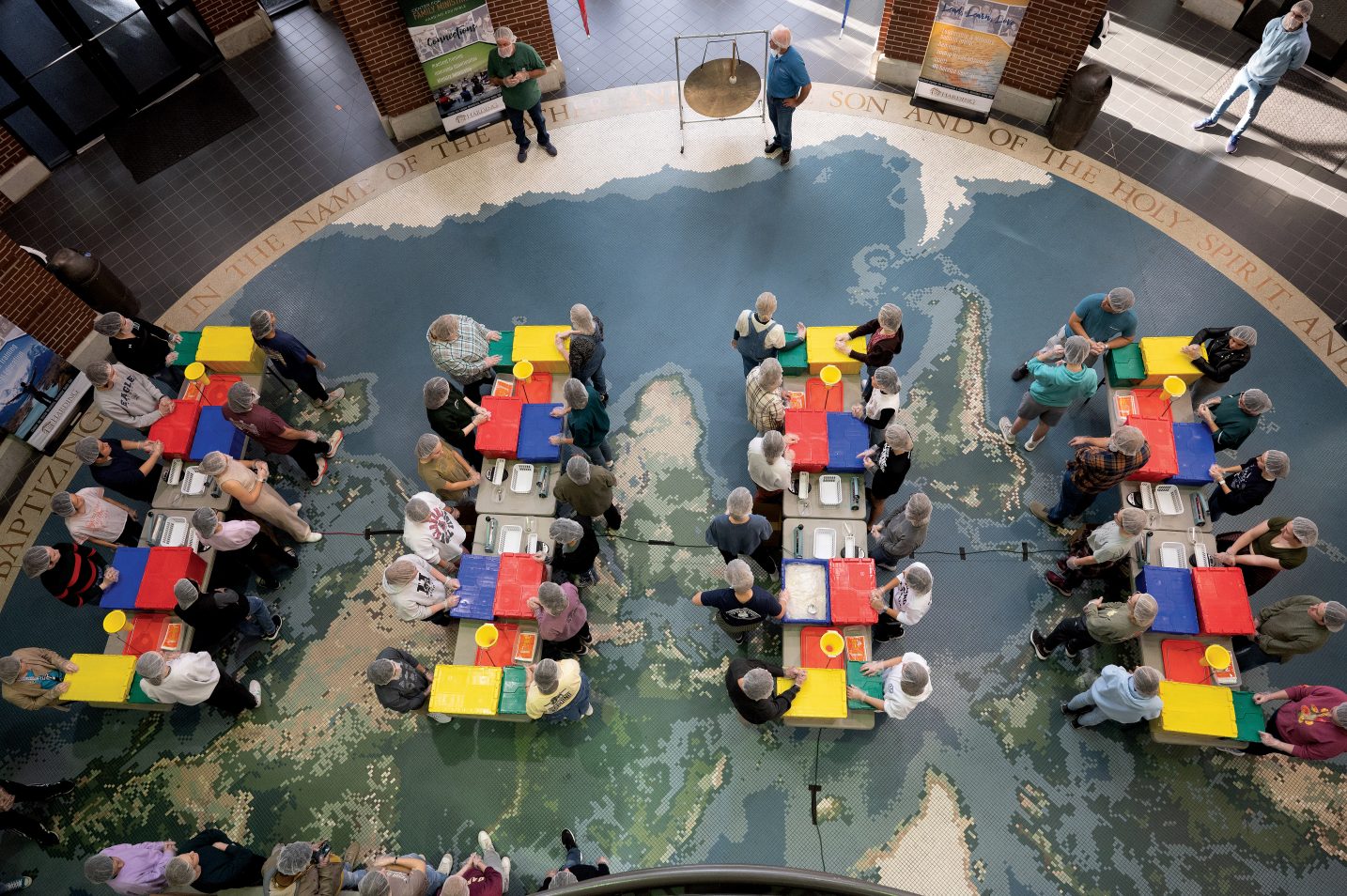
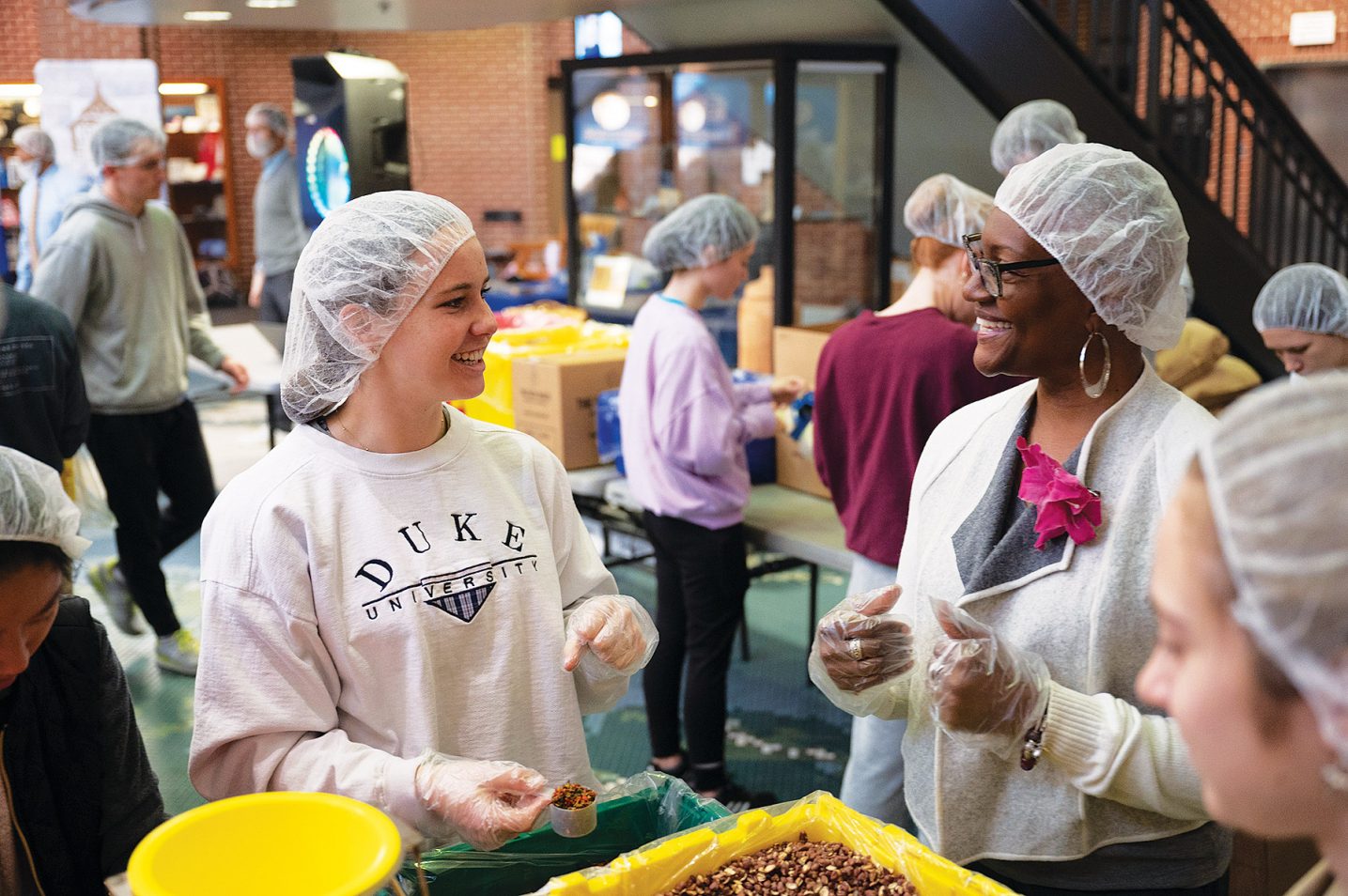
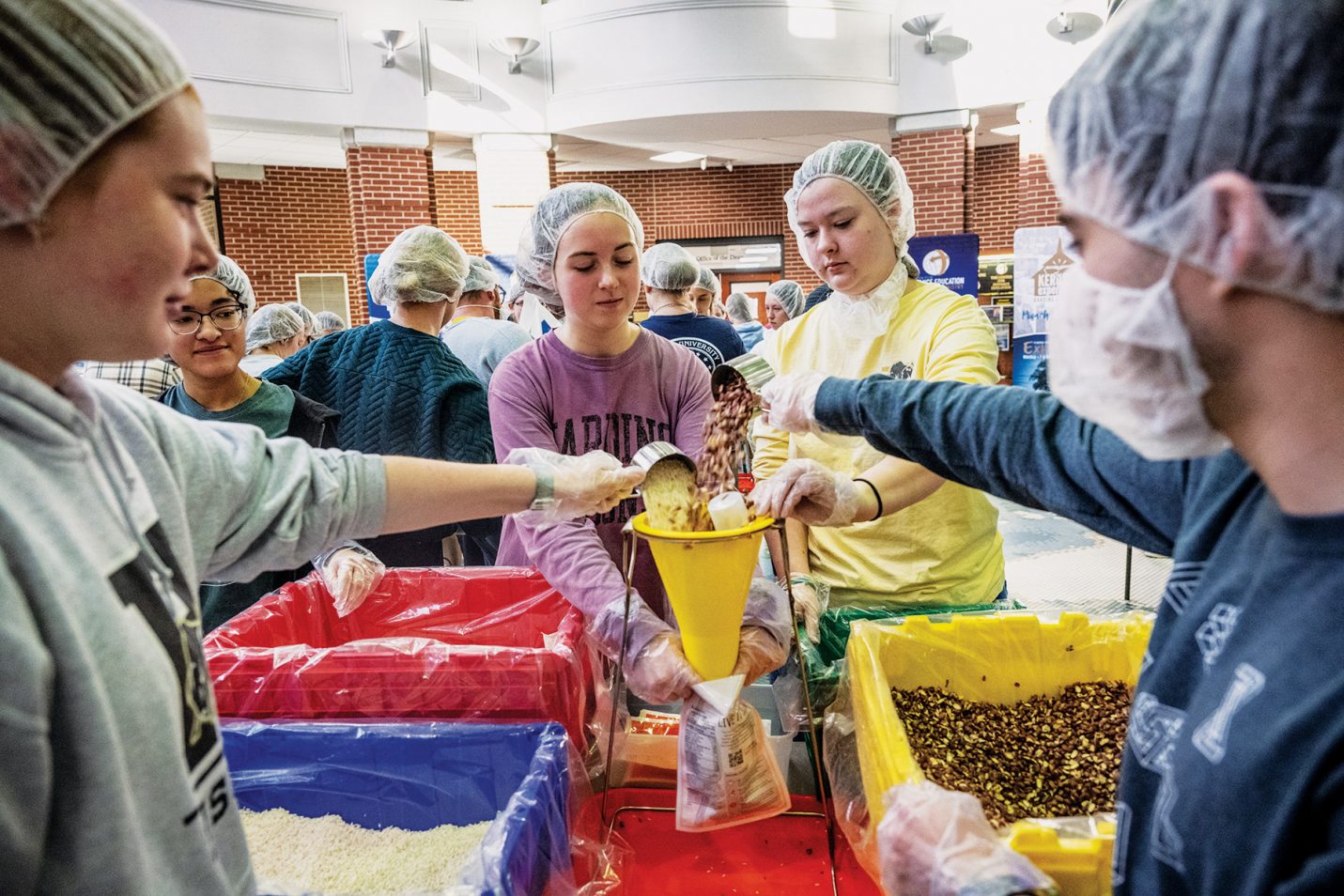
One way students have begun contributing to helping their neighbors in White County is through two Pack Shack events on campus. Pack Shack is an organization that helps supply provisions and opportunities for neighbors in need. The University hosted two “feed the funnel” parties, sponsored by the Paul R. Carter College of Business Administration and the Honors College, packing thousands of dried meals to be passed out to families in White County.
In addition to Pack Shack events, Morris and Lovell have discussed beginning a community closet on campus that will store food, hygiene products and other supplies to meet the needs of the community. Groups will be formed to discuss various needs such as food supply, funding, accessibility and more.
“There is no shame in need,” Morris said. “I don’t want anyone to go hungry, to go without meals for a day because they are concerned about how it might look. Shame on us as the body of Christ if we ever make someone feel ashamed for being in need. And remember, we are all in need in one way or another: mentally, emotionally, spiritually."
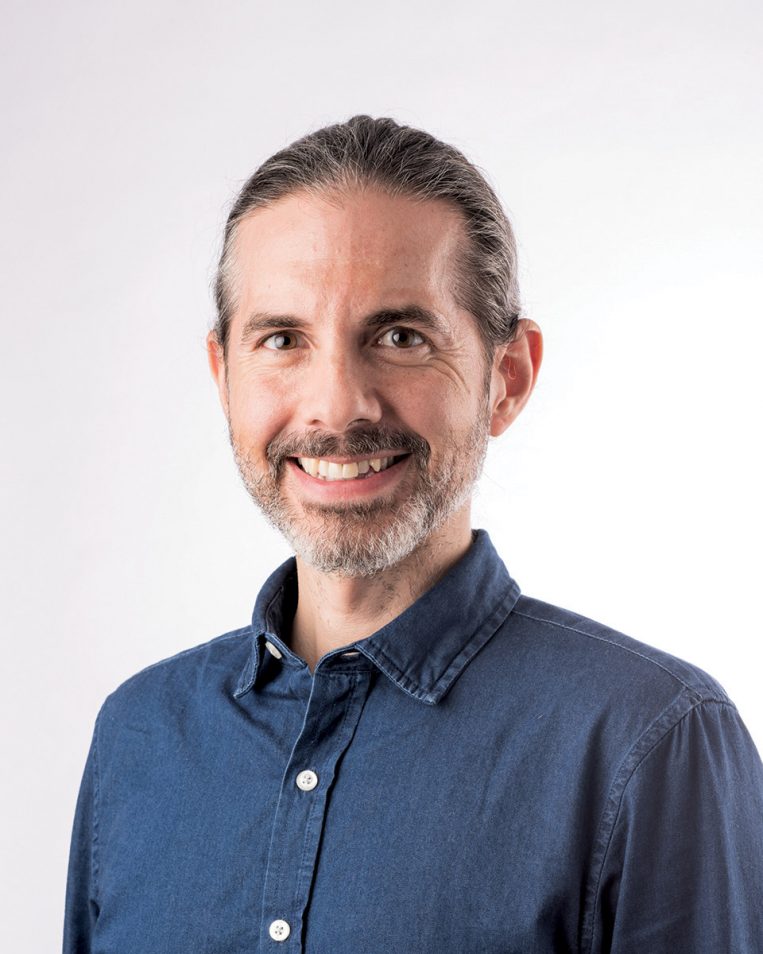
Chris Long ('98) graduated from Harding with a bachelor's in psychology and went on to earn his doctorate in personality and social psychology in 2003. Now, he is a scientist at the University of Arkansas for Medical Sciences where he designs and leads projects implementing and evaluating programs to improve access to healthy food for people who are experiencing food insecurity and chronic diseases. Partnering with food banks, food pantries, school districts, health care providers and churches, they develop effective and cost-effective approaches to support the well-being of families facing food insecurity. These efforts are funded by the National Institute of Health, U.S. Center for Disease Control and Prevention, and the U.S. Department of Agriculture as well as private organizations like the Walmart Foundation and the Alice L. Walton Foundation. Long also serves as a principal research scientist at the Gretchen Swanson Center for Nutrition, an independent, nonprofit research center that evaluates nutrition-related programs across the United States.
“Arkansas has one of the highest prevalences of food insecurity in the U.S. We have amazing agricultural production, dedicated food banks and food pantries, but we still have a lot of people of all ages who worry about where their next meals are coming from. My work is motivated by the chance to use research to identify the best ways communities can benefit by better connecting our food systems and our health care systems. I am lucky to spend every day bringing science into communities to work on solutions that are effective in rural areas, urban areas and everywhere in between.”
Chris Long ('98)
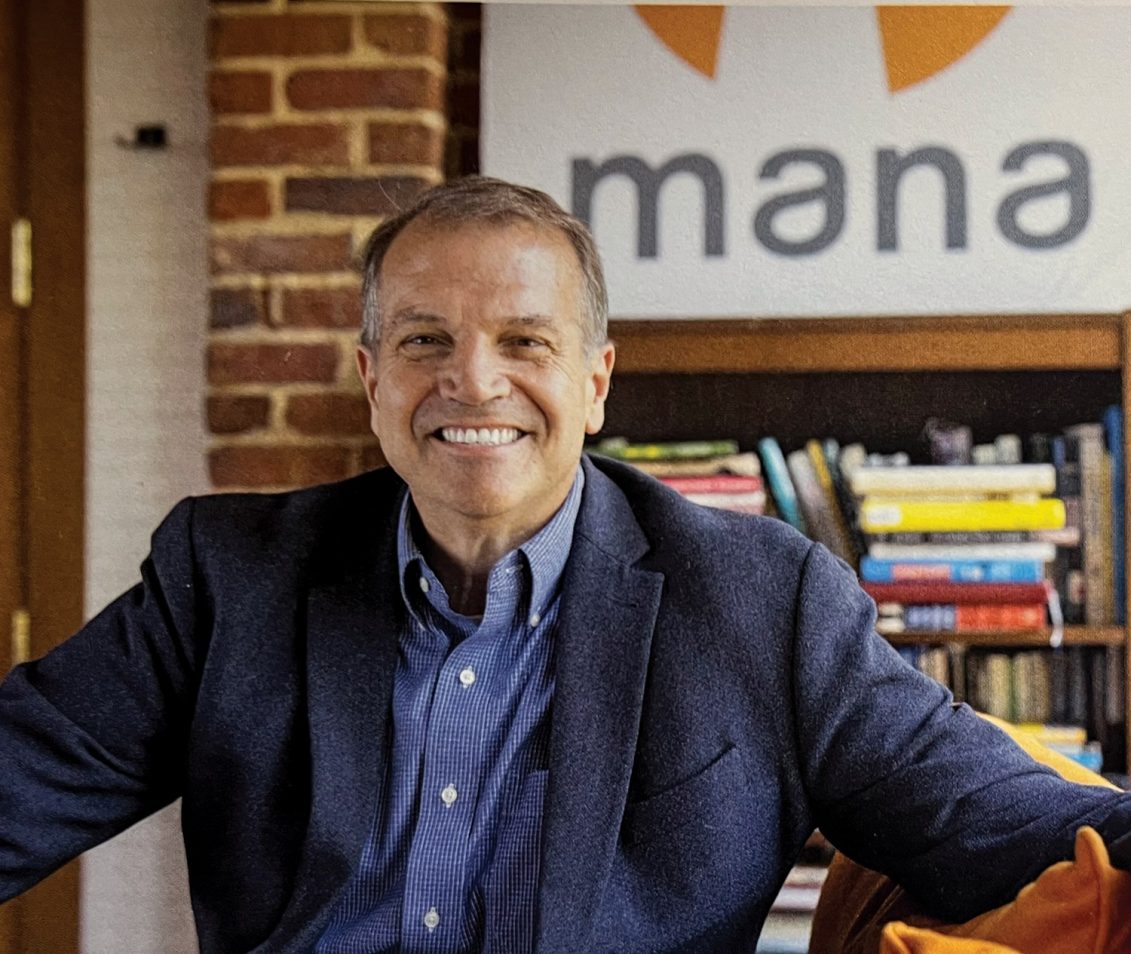
Mark Moore ('90) recalls learning about food aid while working with the U.S. Senate after graduation, and he founded MANA shortly after.
MANA creates and distributes a ready-to-use therapeutic food composed of peanut paste, milk, and a special mix of vitamins and minerals. Carefully formulated to meet a child’s basic nutritional needs, MANA gives the world's most at-risk kids the boost they need to return to good health. At its current production level, MANA can produce up to 121,000 pounds of food per day, which is enough to feed 4,000 children suffering from severe acute malnutrition for six weeks. Today, MANA has distributed food in 45 countries to more than 3 million children.
Moore encourages students to get involved as well.
“Give an hour. Just an hour. Not your whole life. Then see if that hour fills your soul and helps you hunger and thirst for righteousness. I bet it will. And it will give someone a meal as well.”
Mark Moore ('90)